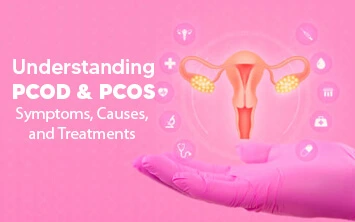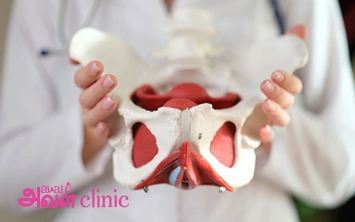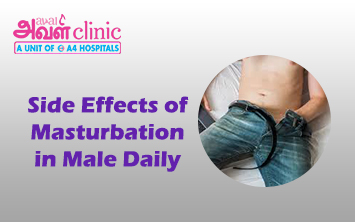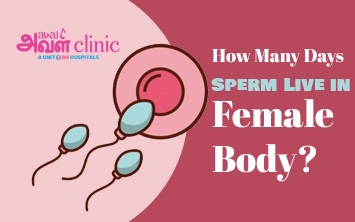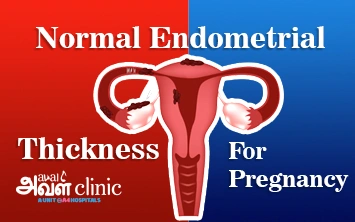Published on: September 24, 2025
Author: Admin
Understanding IUI
Has your healthcare provider suggested an IUI procedure? No wonder your mind is full of doubts and concerns. When you plan to start a family and can’t achieve it for some reason, the first suggestion would be about the IUI procedure, but of course, after doing all the necessary diagnosis.
Intrauterine insemination is commonly referred to as IUI. It is a basic form of assisted reproductive technology (ART) when compared to IVF (in vitro fertilisation). The method is usually suggested when your healthcare provider suspects a problem with the sperm’s ability to reach the egg. It may also be suggested if the cause of infertility is unable to be identified. Whatever the reason is, the IUI procedure is aimed at boosting fertility chances in couples or individuals.
This blog has come up to explain who requires the IUI procedure, how the procedure is performed, and whether IUI is painful.
Who Requires an IUI Procedure?
Intrauterine insemination (IUI) can be recommended to couples due to various reasons. They may include mild abnormalities in the partner’s sperm, issues with regular ovulation, issues in the cervix, and more.
Listed below is the detailed information on who requires an IUI procedure.
Male Factor Infertility
The IUI procedure is often suggested if a female partner is allergic towards her partner’s sperm. Yes, you heard it right. Some women do have allergies to their partner’s sperm. In such scenarios, the healthcare provider may suggest IUI as a suitable treatment option. In addition, if your male partner finds it difficult to ejaculate during intercourse, IUI may be suggested.
Ovulation Issues
The IUI procedure is frequently recommended to couples when their underlying cause of infertility is related to ovulation issues. The procedure is often combined with ovulation induction medications to improve the chances of conception. Ovulation induction medications work by stimulating the ovaries to produce several mature eggs. Since the procedure involves placing the sperm directly near the egg, specifically around the period of ovulation, the likelihood of fertilisation is significantly enhanced.
Unexplained Infertility
IUI is often recommended to couples when the reason for not conceiving can be identified through standard fertility tests. IUI can be helpful in such cases, as it enhances the opportunity for the sperm and egg to meet. Thus, increasing the chances of fertilisation.
Cervical Issues
IUI is often recommended to women with cervical issues like thick mucus and scarring. This is because IUI is performed by placing the sperm directly inside the uterus, meaning escalating the cervical region altogether. The procedure can be largely helpful when these cervical issues prevent sperm from reaching the egg, ultimately affecting fertility.
Endometriosis
Intrauterine Insemination (IUI) is often recommended to couples when their underlying cause of infertility is related to endometriosis, especially mild endometriosis. In such scenarios, IUI is performed alone or in combination with ovarian stimulation procedures. This can significantly enhance the success rates. However, IUI has the likelihood of exhibiting positive results only in the mild endometriosis-related infertility. On the contrary, it may not be effective in the cases of severe endometriosis, which is when advanced treatments like IVF are suggested.
Donor Sperm
Intrauterine Insemination (IUI) can sometimes involve donor sperm due to various reasons. The reasons may include male factor infertility, single women, or same-sex female couples. The procedure is recommended for such individuals or couples when they choose to become pregnant.
Need expert advice? Consult our doctors now!
Call Now: 80047 80048How is the IUI Procedure Performed?
Listed below is the step-by-step breakdown of how the IUI procedure is performed.
Ovulation tracking
The significant step involved in the IUI procedure is tracking the ovulation period. Inseminating the semen into the uterus during ovulation is the focus of this procedure to achieve pregnancy. This typically involves ultrasounds, which are used to closely monitor the growth of follicles. Blood tests were also made to analyse the hormone levels in women. Both of these diagnoses are used to determine the ovulation time. Based on it, the insemination of sperm is scheduled.
Sperm Collection
Sperm collection for the IUI procedure involves collecting the sperm sample from either the partner or the donor. The sample is generally collected on the day of the procedure through masturbation at the facility in a sterilised container.
Sometimes, the sample is collected at the time of intercourse using a special non-lubricated condom. The collected sample is then sent to the laboratory within an hour to maintain its viability and motility. This option is frequently used when the male partner finds it difficult to masturbate.
On the other hand, a semen sample is sometimes retrieved from the urine of the male partner. This option is used in cases of retrograde ejaculation. Retrograde ejaculation is a condition in which the semen fails to ejaculate through the penis during orgasm. Instead, they flow backwards and enter the bladder, which can potentially disrupt the whole reproductive process and impact fertility.
Sperm washing
The collected sample was then sent to the laboratory for processing before insemination. The processing procedure may involve washing the semen sample to remove the seminal fluid and isolate the healthiest sperm. This can significantly enhance the likelihood of sperm meeting with the egg after insemination.
Insemination
Sperm insemination during the IUI procedure can typically take place soon after sperm wash. The procedure begins with inserting the speculum inside the vagina to hold it open. Then, a thin catheter is put in through the speculum into the woman’s uterus. Then comes the insemination of the washed sperm. It is generally injected closer to the egg via the catheter. This insemination procedure can be done in a quick manner, in about 15 minutes.
However, the entire process, from semen collection to insemination, can take place roughly around 90 minutes.
The IUI procedure is considered to be completed as soon as the semen sample is inseminated.
Post-Procedure
Once the IUI procedure is completed, your healthcare provider may instruct you to rest at the facility for a short time. Following it, they may prescribe certain hormonal medications like progesterone to support the implantation. It is generally suggested to wait until your expected menstrual cycle to test for pregnancy after the IUI procedure.
In the meantime, you may be advised to take an adequate amount of rest, but generally, complete bed rest is not required. Some women may experience spotting or light cramping due to the catheter insertion. The discomfort will subside on its own in a maximum of two days. Avoiding heavy workouts and hot baths is also suggested for a short period. Consuming a balanced diet, staying well-hydrated, and managing stress can all help to support the implantation.
Note: Success rates may vary from person to person, typically based on their age and the cause of infertility.
Is the IUI Procedure Painful?
Here comes our showstopper.
The IUI procedure does not necessarily require anaesthesia. Understanding this, many women have concerns about potential discomfort and side effects associated with the procedure.
Experts claim that the IUI procedure does not involve any painful process. Whereas, it may exhibit only mild cramping and discomfort. This may happen due to the speculum or catheter insertion. The discomfort may generally subside after some time since the process is completed within minutes.
Note: If the discomfort persists even after a couple of days, it is highly suggested to have a talk with your healthcare provider.
Summary
Even though IUI (intrauterine insemination) is the basic form of assisted reproductive technology (ART), it can still play a significant role in helping you become pregnant. This is possible particularly in the cases of minor fertility issues.
If you are still concerned about the pain associated with the IUI procedure, talking to your healthcare provider is highly appreciated.
If you still have any concerns, having a consultation with experts at Aval Clinics is recommended. They can guide you.
Contact us today for expert advice and personalized care:







